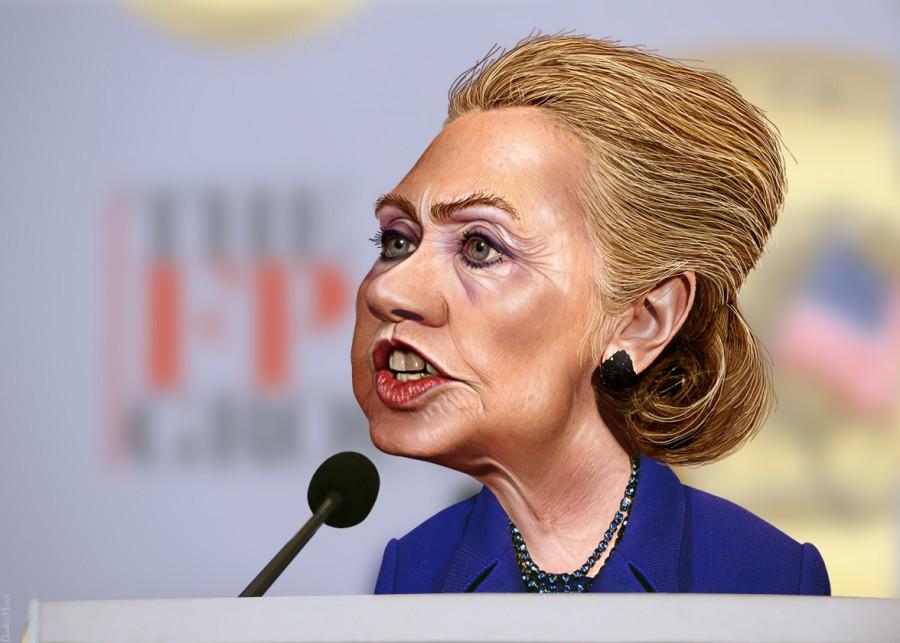Redefining feminism in politics
Sexism is less of a problem than we think it is in the current U.S. presidential elections. The problem actually lies in the use and abuse of the word sexism. Sexism is being thrown around loosely and sprinkled into arguments, reaching many well-intentioned, non-sexist critics of Hillary Clinton. Just as bad, many people erroneously make the assumption that all critiques against Clinton stem from sexism. Everyone has the right to call out sexism and misogyny—especially when it comes from someone who identifies themselves as progressive or a feminist—and legitimately critique Clinton without having to worry about being called a sexist or a Bernie Bro. We must learn to criticize a female candidate without being sexist, or being called sexist for criticizing her.
In the United States, voters generally don’t make political choices based on gender. As Lara Brown, an associate professor at George Washington University, said, “This is one of the great sort of myths and falsehoods out there, that women are able to attract women voters. Women vote for their political party over their gender.” A Wall Street Journal/NBC/Marist College poll of Democratic voters in New Hampshire showed that 64 percent of women under the age of 45 support Bernie Sanders, while only 35 percent backed Hillary Clinton; in comparison, women over 45 backed Clinton by nine percentage points. From Brown’s point of view, these numbers would have no basis in sexism.
Karlyn Bowman, a public opinion analyst at the conservative think-tank American Enterprise Institute, recently published a study of Clinton’s poll numbers since 1992, which demonstrates exceptional durability of Clinton’s approval rating. “Her image is very positive and, in many ways, it’s grown more positive over time,” Bowman said.
This is not to say that Clinton is not criticized at all. She has been called “shrill” and “dishonest,” though these have nothing to do with gender. Hillary Clinton has received sexist criticism from the Republican presidential frontrunner, Donald Trump. During his appearance in the Hugh Hewitt Show, Trump said, “I mean, it looks uncomfortable and a lot of people would say the woman, I think she has been, you know, very, she has been raising her voice a lot [sic].” He even described his experience listening to Clinton as “painful.” Knowing Trump and his outrageous, rude, racist, sexist, and vulgar tirades, I think it’s safe to say that his speech hinted at sexist undertones. Clinton’s response was heard in October at the Democratic National Committee’s Women’s Leadership Forum, when she said, “When women talk, some people think we’re shouting.”
Clinton is a strong candidate for her intelligence, experience, and expertise, but you can still be feminist and vote against her. “Voting a woman into office is not a feminist act per se. Being a woman and being a feminist are not mutually exclusive,” Angela Blackschleger wrote on Facebook. Moreover, as Melissa Pugh said on Facebook, “Feminists choosing her just because she is a woman, is the opposite of what feminism means. A ‘person’ should be elected by their records, not their gender.” In fact, many young feminists are siding with Bernie Sanders. In an interview for the New York Times, Dana Edell, the executive director of SPARK Movement, a gender justice advocacy group, represented the sentiment of many young female voters when she said, “While the historic aspect of the first woman president is hugely powerful and important and would set a really powerful image for young boys and girls to look up to, she might not be the right first woman.” Young voters feel uncomfortable with the status quo, and Clinton hasn’t convinced them that she is the change agent in the race.
Many women are disappointed and offended with Madeleine Albright and Gloria Steinem, two feminist icons, and their seemingly anti-feminist comments. Referring to Clinton and the presidential election, Albright said, “We can tell our story of how we climbed the ladder, and a lot of you younger women think it’s done. It’s not done. There’s a special place in hell for women who don’t help each other!” Gloria Steinem explained in an interview with talk show host Bill Maher that women tend to become more active in politics as they become older, she suggested that younger women support Bernie just so they could meet younger men. “When you’re young, you’re thinking: ‘Where are the boys? They boys are with Bernie,’” she said.
Zoe Trimboli, a 23-year old from Vermont who supports Bernie Sanders and describes herself as feminist, wrote on Facebook, “Shame on Gloria Steinem and Madeleine Albright for implying that we as women should be voting for a candidate based solely on gender. I can tell you that shaming me and essentially calling me misinformed and stupid is NOT the way to win my vote.”
Superficial traits, such as chest fat or facial hair, can be misleading and even dangerous at times. In politics, it is extremely important that we eliminate gender from the equation. Feminism in politics means supporting the best candidate, regardless of their gender. If Hillary Clinton doesn’t win the 2016 election, it won’t be because people don’t want a female president, but because of her proposals and overall appeal to America.
Sources: latimes.com, nytimes.com, cbsnews.com, cosmopolitan.com, huffingtonpost.com, mic.com

This is Fe’s third and final year in The Talon as Features Editor. Fe spends her time reading non-fiction books, learning eccentric words, collecting...









